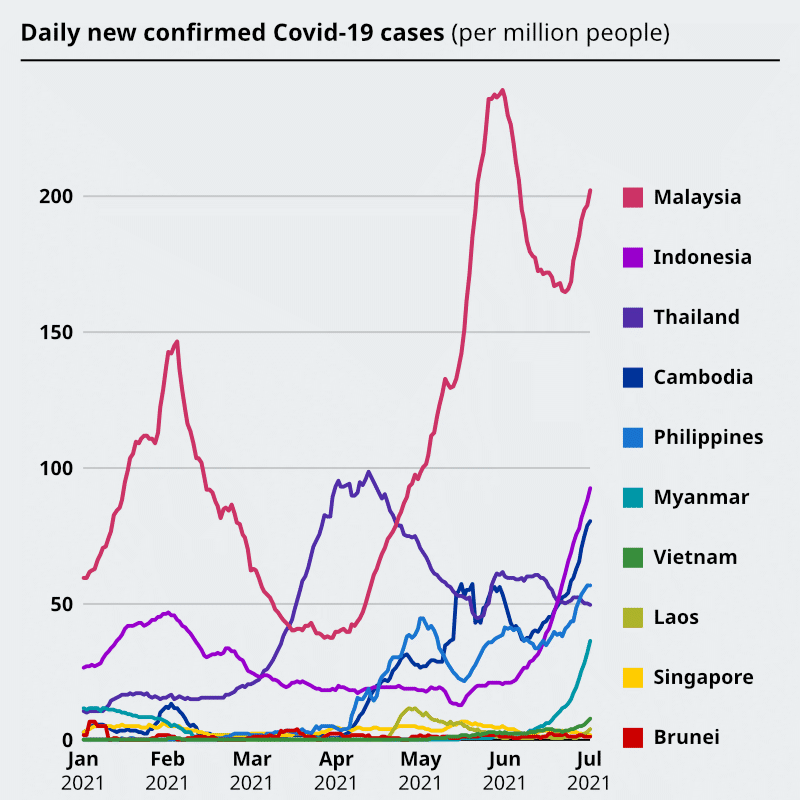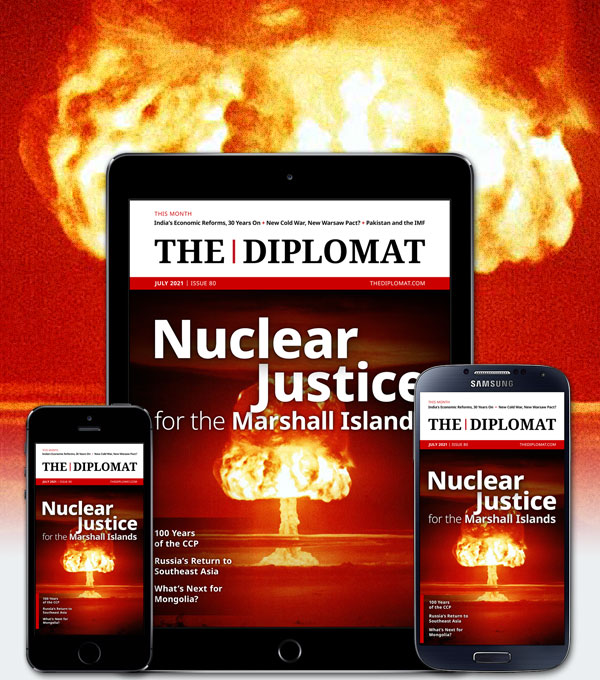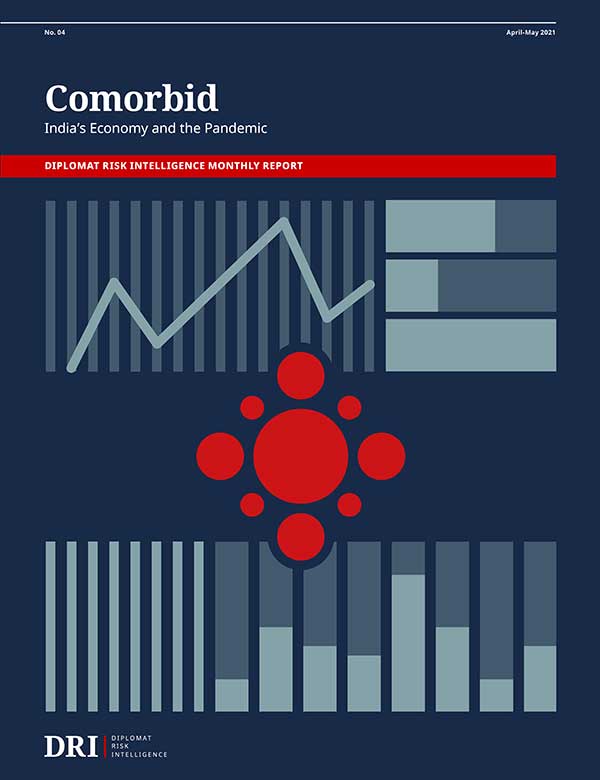| Welcome to the latest issue of Diplomat Brief. This week our top story looks at South Korea’s complicated stance on the “Free and Open Indo-Pacific” concept – and the China-U.S. rivalry behind it. We also have an interview with Victoria Samson, Washington office director for Secure World Foundation and former senior analyst at the Center for Defense Information, on China’s space program and the implications for China-U.S. competition. |
| Story of the week |  | DIPLOMACY South Korea’s Free and Open Indo-Pacific DilemmaWhat Happened: South Korea has been in headlines lately for its participation in perceived “anti-China” groupings, from the statement issued at the G-7-Plus summit to the earlier Biden-Moon summit in Washington, D.C. But Seoul’s stance on the U.S. regional strategy remains deeply conflicted – and its actions show that. Our Focus: “South Korea’s endorsement of Indo-Pacific multilateralism is a matter of debate,” Tam-Sang Huynh of Vietnam National University writes for The Diplomat. “The enduring question for the Moon administration is how far it can go to develop its multilateral commitments without antagonizing China, while at the same time leveraging its middle power status in the Indo-Pacific.” What Comes Next: Seoul’s promise to bind Moon’s New Southern Policy with the U.S. “Free and Open Indo-Pacific” contest will pose an important test for South Korea’s ability to pursue its own interests without becoming trapped in China-U.S. competition. Focusing on health cooperation, especially COVID-19 aid, which is urgently needed in Southeast Asia, is a good place for Seoul to begin. Read this story |
| Behind the News | INTERVIEW Victoria SamsonVictoria Samson, Washington office director for Secure World Foundation, on the progress in China’s space program: “China’s human spaceflight trajectory has largely mimicked that of the U.S. and Russia. A lot of the concern in the U.S. focuses more on what China could be doing.” Read the interview |
| This Week in Asia | Northeast Asia North Korea’s Food Crisis DeepensLeader Kim Jong Un has been making public admissions of a food and economic crisis in North Korea – a sure sign that the situation is now too dire to ignore. The North’s economic situation, already squeezed by sanctions, has grown especially grim in the wake of tight border controls imposed to avoid the spread of COVID-19. With food security slipping away, Kim may have to choose between the virus or the threat of mass starvation. Find out more | South Asia Pakistan Accuses India of Car BombingPakistan’s national security advisor openly accused India’s foreign intelligence agency of being behind a June car bombing in Lahore, which targeted Lashkar-e-Taiba founder-chief Hafiz Saeed. That will only add fuel to rampant speculation that a recent series of drone attacks in Jammu and Kashmir was orchestrated by Pakistan in response to the Lahore attack. Find out more | Southeast Asia Malaysia’s Parliament Will ReconveneFollowing concerted pressure from political allies and opponents alike, Malaysia’s Prime Minister Muhyiddin Yassin has agreed to allow parliament to reconvene in late July. The big question is whether Muhyiddin’s premiership will survive another session of parliament – there was widespread belief that he had suspended the body in the first place to avoid a political confrontation, though the COVID-19 emergency was the official rationale. Find out more | Central Asia Turkey Abducts Educator From KyrgyzstanWhen Orhan Inandi, the founder of a well-respected school system in Kyrgyzstan, disappeared from Bishkek on May 31, the immediate fear was that he had been snatched by Turkey. This week, Inandi reappeared exactly as feared: paraded on Turkish television in handcuffs. Find out more |
| Word of the Week | SOCIETY 白幼瘦Bái yòu shòu: Mandarin for “light-skinned, childlike, and lithe,” referring to the stereotypical ideal for women in China. Find out more |
|  |





